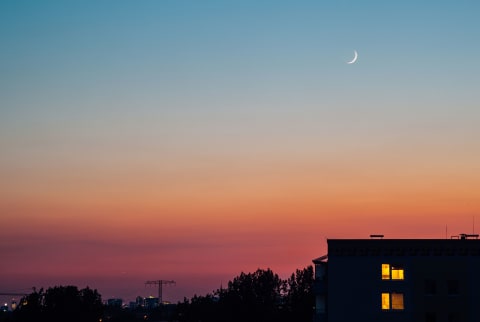From sparking technological mishaps to bringing ex-lovers back into your life, Mercury retrograde certainly has a reputation for causing all kinds of shenanigans. And lucky us: The first retrograde of the year is coming up from January 15 to February 3.
One underestimated side effect of Mercury retrograde that you might want to start prepping for? Sleep disruption. Here’s why, plus what to do about it.
A quick refresher on Mercury retrograde.
Before we dive in, let’s recap what Mercury retrograde actually is. As mbg’s resident astrologists, the AstroTwins, previously wrote for mbg, the planet Mercury is all about communication, information, logic, and transportation.
“When Mercury goes retrograde,” they explain, “it’s passing the Earth in its journey around the Sun. From our vantage point, Mercury appears to be moving in a different direction in the sky (i.e., retrograde).” While it’s not actually moving backward during its retrograde, it appears that way from our perspective, and as a result, technology, travel plans, and communication can feel slowed down or scrambled, the twins add.
And when thinking about how this affects us, you can think about words that start with “re.” (Reconnecting with old friends, revising plans, remodeling, etc.) “Think of Mercury retrograde as a quarterly review period, and use it to pause and reassess, research, and revise,” the twins say.
So, what does Mercury retrograde mean for sleep? For one thing, it’s thought that each planet governs different parts of the body, and in the case of Mercury, it’s associated with our nervous system, among other things.
It goes without saying that anyone with an unsettled nervous system is going to have a tough time relaxing into a good night’s sleep. And on top of that, our minds may be working overtime during Mercury retro to make sense of all the scrambled information. As we find ourselves reuniting with people from the past, reassessing memories, and revising certain areas of our life, all this “revision” can seep into our sleep—and our dreams.
After all, dreams are believed to stem from a combination of our emotions, our environment, and the things we encountered during the day, therapist and dream expert Leslie Ellis, Ph.D., previously explained to mbg. “I think of this so-called day residue as a palette that our dream-maker can work with to express the emotional events in our life, both personal and collective, that want to command our attention,” she notes, adding that the dreams associated with stress tend to be close replicas of real life.
How to get better sleep during Mercury retrograde.
Over the next few weeks, if you find yourself awake with an active mind or having weird dreams that jolt you up, you likely won’t be alone.
Luckily, there are a few things you can do to make sure you’re still getting enough quality rest. For one thing, research has found that writing out your to-do list for the following day before bed can help you relieve stress and fall asleep faster. You could also consider taking a sleep supplement, like mbg’s sleep support+, which is a research-backed way to help people fall asleep faster and stay asleep through the night, by calming their body and mind.*
Other stress-reducing tactics like gentle yoga before bed or a meditation for sleep could also help. And while it’s a bit harder to keep dreams from disrupting your sleep, taking up the practice of dream journaling can, at the very least, help you decode the messages of your wonky dreams so you can try to learn something from them.
Mercury retrograde lasts only a few weeks, but it can feel like a lifetime—especially if you’re not getting enough sleep! As January 15 approaches, do your best to mitigate stress, give yourself plenty of time to unwind, and maybe pick up some sleep-promoting reinforcements to help you snooze through everyone’s least-favorite transit.*








